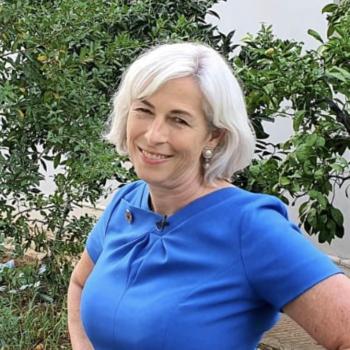Facilitating solutions in Albania to today’s defining challenges: COVID-19 and climate change
When COVID-19 hit Central and Eastern Europe in early 2020, the newly strengthened capacity of the Resident Coordinator was quickly called into action.
Fiona McCluney had served as the Resident Coordinator in neighboring Montenegro during the initial phase of the pandemic, and brought to her new position in Albania, in September 2020, the experience of leading the UN’s work with that Government to develop both the pandemic preparedness plan and a costed socio-economic response plan.
- The Resident Coordinator ensured effective crisis management and information sharing between UN agencies, development partners and the national authorities, who were also at that time dealing with the aftermath of an earthquake. The Resident Coordinator’s office drew on the expertise from different UN agencies to provide targeted support to Albania’s health care system, also arranging three medical evacuations and the successful delivery of 97 percent UN COVID-19 vaccines to UN staff and dependents and partner organization including the World Bank, European Bank for Reconstruction and Development, and the International Monetary Fund.
- In close coordination with the World Health Organization (WHO) in Albania, the Resident Coordinator led UN Albania’s efforts to build vaccine confidence and counter misinformation. A bi-monthly UN newsletter, which the Resident Coordinator’s office produced and disseminated to over 14,000 partners across the country, illuminating the UN’s commitment to overcome vaccine hesitancy, strengthen mental health capacities and build greater resilience to vaccine related misinformation.
The Resident Coordinator’s role as the senior-most representative of the UN development system at the country level has also helped to strengthen the UN’s advocacy in other critical areas such as climate action.
- Supported by the economist in the Resident Coordinator’s office, Ms. McCluney was able to bring additional weight to the UN’s support to policy discussions between the Government of Albania and other development partners regarding fossil fuel use, National Determined Contribution (NDC) to reduce carbon emissions and adapt to the impacts of climate change. Bringing capacity and analysis of the country’s fossil fuel extraction and energy security, the UN was able to play a key role in elevating the Government’s climate ambitions and ensuring it raised the ambition of its new NDCs.
Albania
Europe and Central Asia



